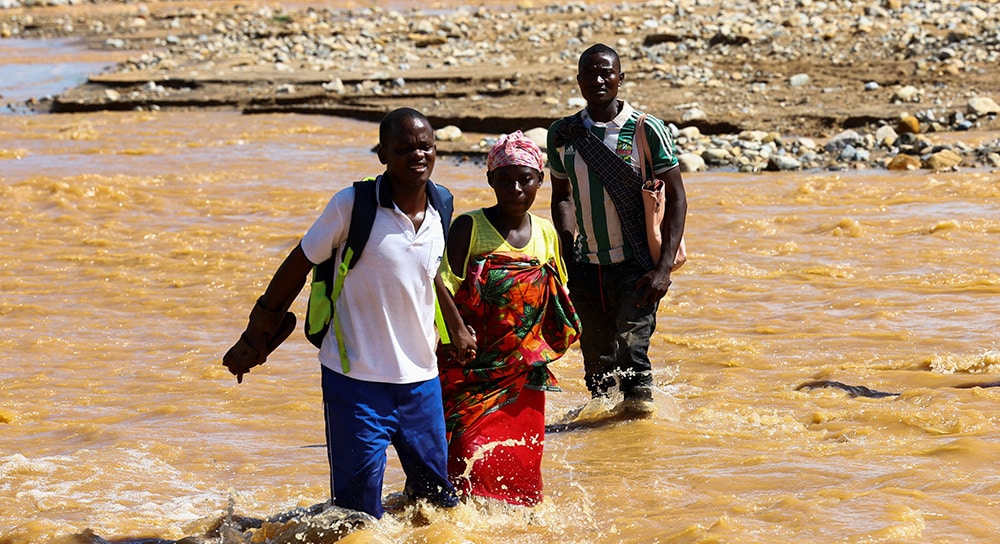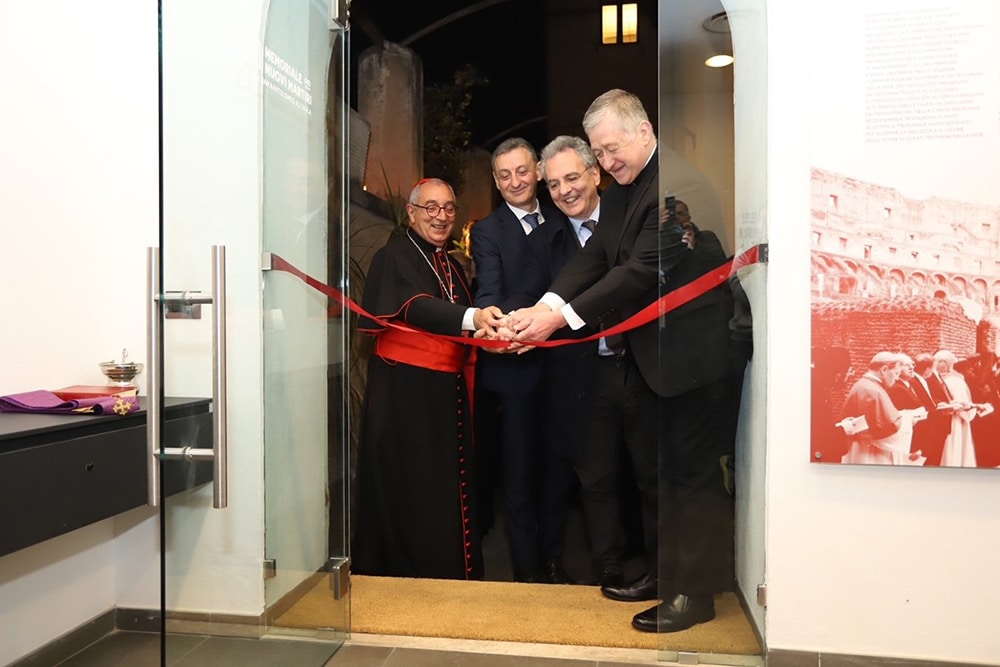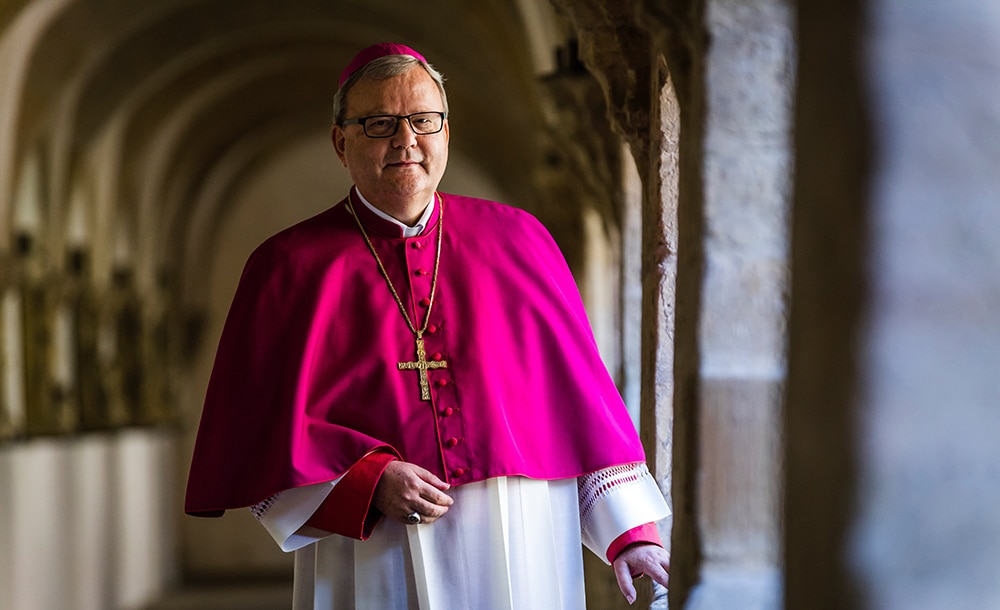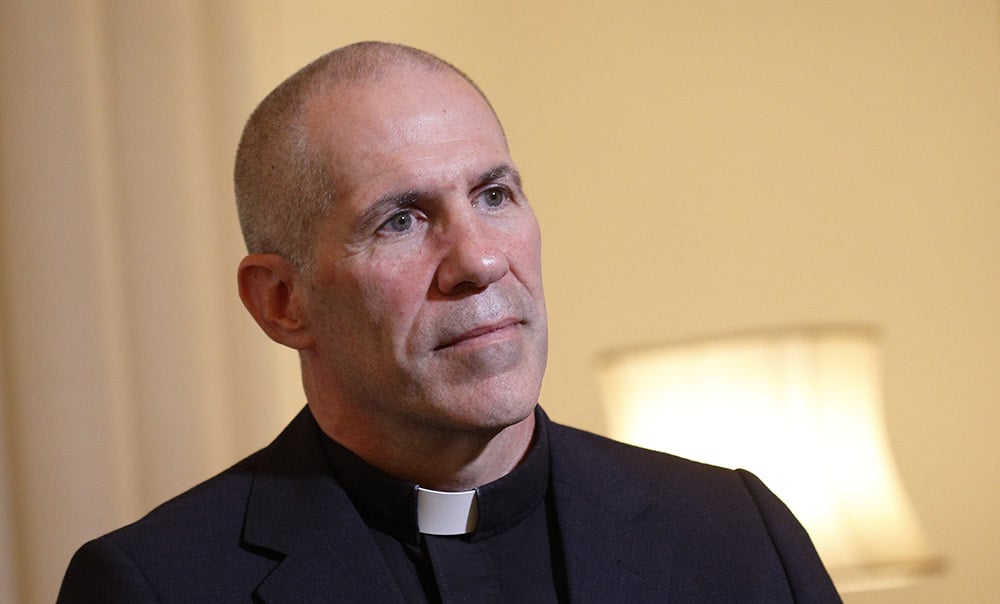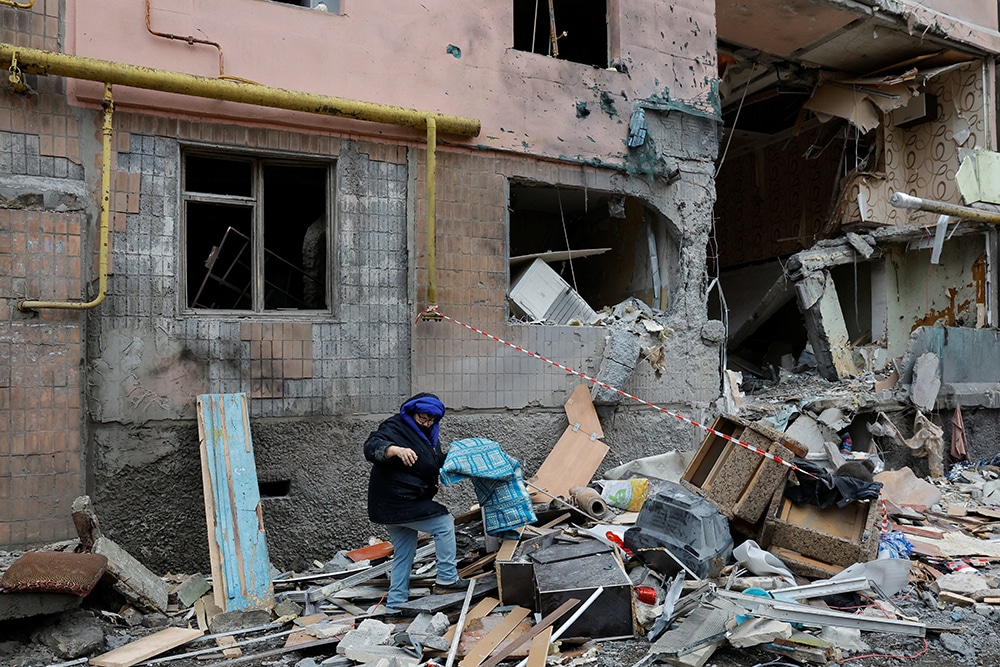YAOUNDÉ, Cameroon (OSV News) — Malawi is reeling from the consequences of Cyclone Freddy that hit the southeastern African country March 12. The storm system caused flooding and mudslides that have resulted in the deaths of at least 476 people as of March 19, according to Malawi’s Department of Disaster Management Affairs (DODMA).
Over 490,000 people have been displaced and are sheltering in over 500 sites across flood-affected areas of Malawi, as communities begin to reckon with the damage wrought by the Tropical Cyclone Freddy weather system, according to the United Nations Office for the Coordination of Humanitarian Affairs (OCHA).
“Many parts of the infrastructure, such as schools, health facilities, bridges have been damaged. Hospitals are overwhelmed, and they have limited supplies,” Chimwemwe Sakunda, national coordinator of the Catholic Development Commission in Malawi, told OSV News.
She said the lives of many children have been upended by the disaster, many of whom are now left without parents or guardians. Children are also deprived of education — over 437 schools have been destroyed or damaged, while 242 others are now being used as sites for displaced people.
The United Nations said there is a risk of a cholera spike in a country already reeling from the water-borne disease. According to UNICEF, this may affect millions of children in Malawi and neighboring Mozambique. Cholera cases have almost quadrupled — to almost 10,700 — since early February and more than 2,300 cases have been reported in Mozambique in the past week alone, the agency said.
The floods have swept away toilets and rendered thousands without access to safe drinking water, therefore the country faces an “immediate danger” of a surge in cholera cases, Storn Kabuluzi, Malawi’s health services director, warned.
“The magnitude of this cyclone is that every Malawian knows someone who has been directly affected. All this also poses a threat on mental health as most people are traumatized,” Sakunda told OSV News.
Malawian bishops urged Catholics and all people of goodwill “to stand and feel with the victims of this devastating cyclone and immediately start to donate whatever they can, in form of money and in kind, to help the victims who have been affected and are suffering from the effects of the cyclone,” they wrote in a March 14 statement.
The church has already been responding. Sakunda told OSV News that the Catholic Church has been providing “relief items such as blankets, buckets, chlorine and support to the search and rescue teams through volunteers.”
Jesuits in the country also have joined in the relief efforts, with Martha Phiri of the Jesuit Center for Ecology and Development based in Malawi’s capital city, Lilongwe, telling Vatican News that her organization has been helping devastated communities deal with the aftermath of the crisis.
“What inspired our work is what our Pope Francis invites us to do: to hear the cry of the poor and the cry of the earth. And not just hearing, but to take action,” she said.
The Scottish Catholic International Aid Fund, better known by its acronym SCIAF, and its partner Caritas, also has been busy on the ground, offering relief to victims of the disaster.
“SCIAF has immediately released $12,300 to help with the relief efforts,” SCIAF Chief Executive Alistair Dutton said in a statement.
He said Caritas Malawi has been distributing relief items “such as water containers, chlorination tablets to treat contaminated water sources, and cooking utensils, crockery and cutlery for people to eat. They are also working with the district level government, distributing the essential people needed right now.”
“Demand has overwhelmed the agencies who are responding and Caritas Malawi urgently need basic food and cooking items. These are available in the region, and can quickly be bought and delivered, so our initial contribution of $12,300 will immediately start that process.”
Sakunda told OSV News that for a country frequently hit by cyclones such as Freddy, there is a need to better prepare for future disasters. This would mean strengthening the mandate of the DODMA especially by improving its financial situation, and ensuring that the law on disaster management and response which “remains on the shelf” is implemented.
“There is need for further advocacy,” she emphasized.
Ngala Killian Chimtom writes for OSV News from Yaoundé, Cameroon.

